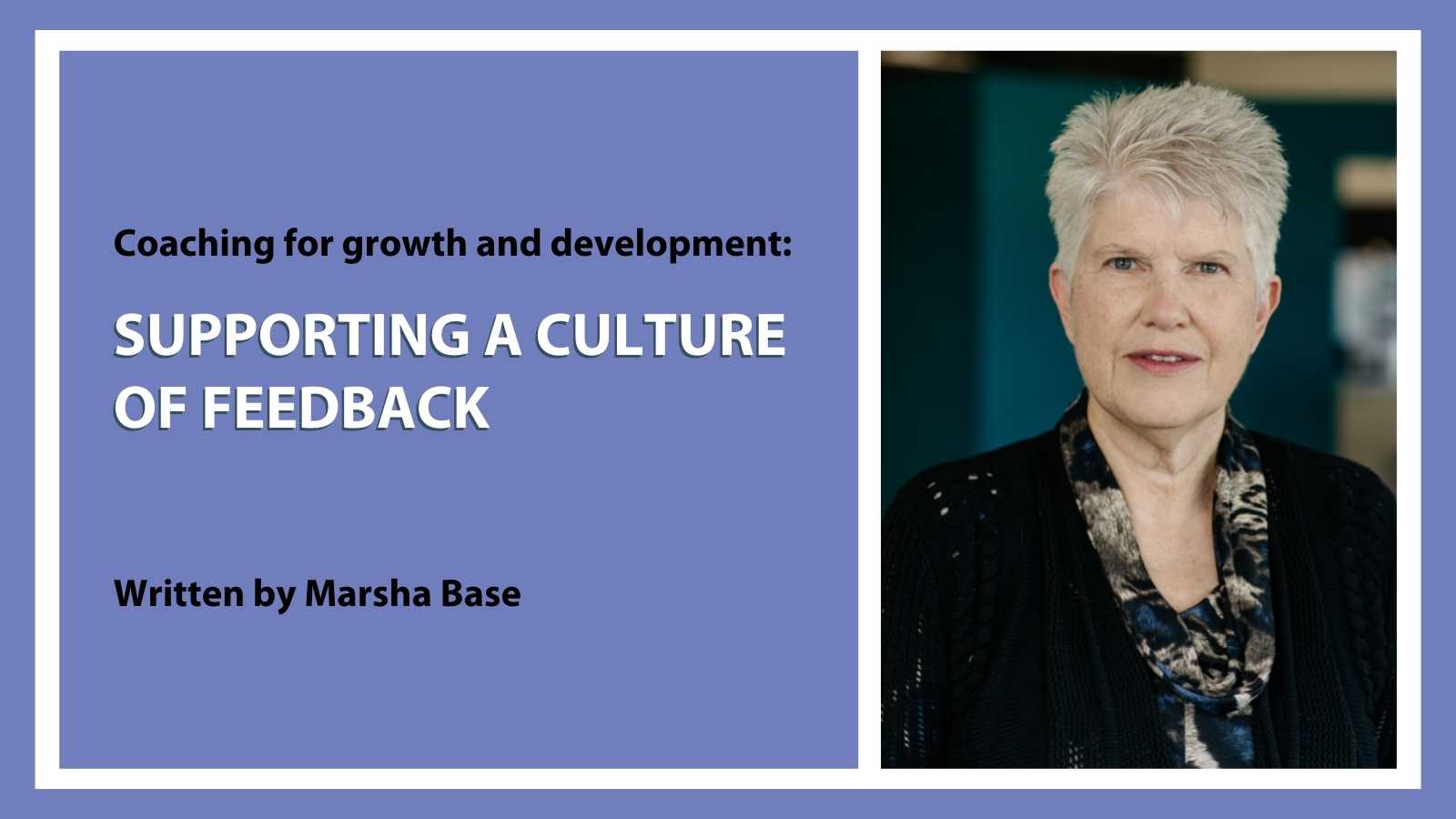
Hi, I am Marsha Base, and I have the best job at IG, at least I think so. My primary role is to support the growth and development of our powerhouse consulting team. This is an occasional series about my passion—coaching for growth and development.
Fostering a growing and fulfilled consulting team means encouraging feedback that is clear, actionable, and timely. This approach means rethinking traditional practices and leaning into a culture of feedback driven by the consultant rather than prescribed by the supervisor. Side note: If this sounds good to you, we are hiring!
Today, I am sharing some observations about creating this culture of feedback.
You might have just completed your organization’s annual feedback process, often called performance reviews; same here at IG. Our current process is fairly traditional with a limited 360 twist in which several colleagues contribute insights. I compile these contributions, add my own observations, and present a summary to each consultant. While these reviews are somewhat helpful, they are time consuming and limit feedback value. Here are two key lessons we have learned so far:
- Traditional performance reviews are at most neutrally supportive of an environment of feedback. More times than not, they can deter an open culture of respectful feedback by reinforcing a wall of anonymity that inhibits authentic communication where dialogue for understanding can take place. Performance reviews also delay feedback to a point-in-time rather than providing just-in-time feedback closer to the experience/observation.
- Having me collect feedback through contributors (a modified 360 approach) has been helpful in forming a more holistic view of consultants’ performance within and across our project teams. This approach is also problematic, in that as in No. 1 above, the anonymity factor and feedback delay often remain at play. This process offers less clarity to the consultant, as I summarize contributor feedback—nuance and the opportunity to ask clarifying questions can be lost through my interpretation of others’ observations.
Based on these lessons, we have taken steps to support a deeper environment of feedback. So far, we have:
- Provided training on clear communication and difficult conversations.
- Created space for one-on-one coaching around giving feedback.
- Experimented with some consultants (volunteers) conducting their own mid-year reviews. This has included meetings with me for collaboration and coaching, as well as next-step discussions based on their findings.
Our next feedback evolution is to explore with our consultants what it would look like if we let go of our current annual performance review process and relied on a culture of individually driven feedback instead. These discussions are informed both by our experiences and outside perspectives, including approaches found within Reinventing Organizations by Frederic LaLoux. LaLoux’s explanation of feedback within what he describes as “Teal” organizations is what we are striving to become: “Giving feedback is a responsibility shared by all and happens routinely at both a team and individual level. Feedback is especially powerful in a Teal organization because it is intentionally non-judgmental, and feedback is given in a spirit of open exploration and acceptance. Teal values the whole person, not just the job they are doing.”
So, I am curious, how are you building or experiencing a culture of feedback? I would love to hear from you.
Please check back in a couple of months for another article in this series! You can also read the previous installment on how I approach coaching for growth and development.
